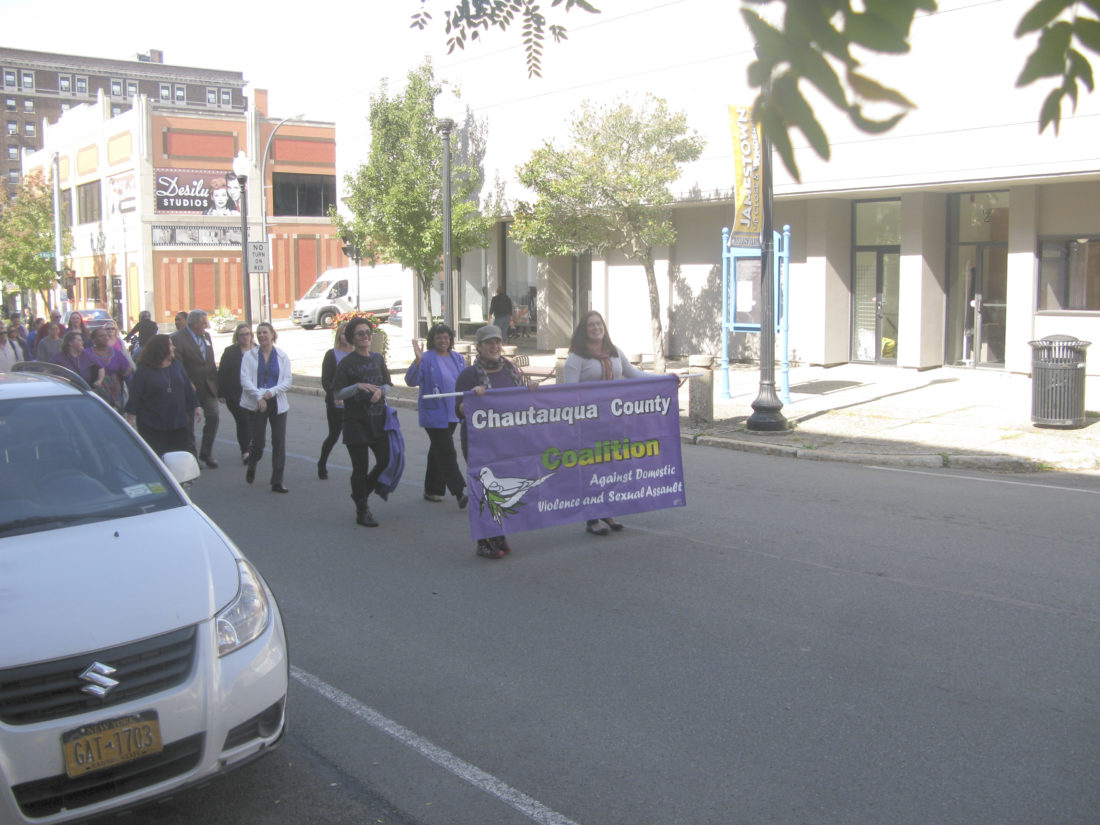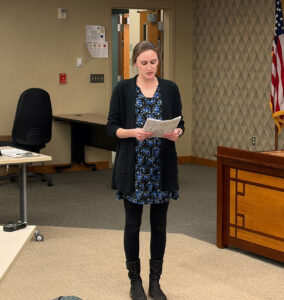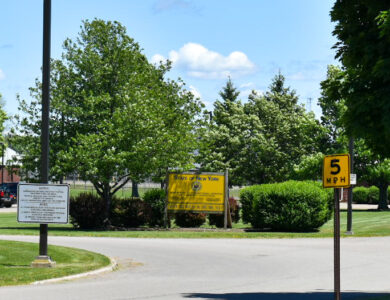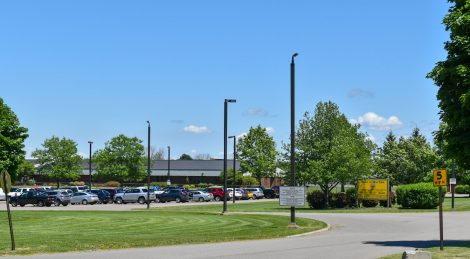5 Things To Know About Domestic Violence In NYS

Members of the Coalition Agains Domestic Violence and Sexual Assault walk in Jamestown. P-J file photo
Domestic Violence Awareness Month and the #MeToo movement have been important aspects of society that have helped educate the public about the necessity to reduce violence between partners and among families.
Domestic abuse can often act as a feeding system into other societal issues such as crime, mental illness and other forms of abuse. For these reasons and to care about the victims of abuse, there are five main categories of facts that everyone should know in order to increase awareness.
Definitions
According to NYcourts.gov, the definition of domestic violence is “a pattern of coercive tactics, which can include physical, psychological, sexual, economic and emotional abuse, perpetrated by one person against an adult intimate partner, with the goal of establishing and maintaining power and control over the victim.”
Domestic violence impacts the lives of thousands of state residents every day and affects the lives of men and women from all backgrounds and circumstances, regardless of race, ethnicity, age, sexual orientation, religious affiliation, socioeconomic status, education or occupation.
If someone has been threatened with abuse or has been victimized, he or she can ask his or her local court for an order of protection against the person who allegedly committed the acts of violence or abuse.
Victims in emergency situations should always call 911 for immediate assistance.
There is a difference between domestic violence and integrated domestic violence and the way both are treated in New York State’s Domestic Violence Courts. These courts make decisions regarding criminal offenses involving intimate partners. Domestic violence courts feature a dedicated judge, resource coordination, on-site victim advocacy and collaboration with specially-trained staff involving a specific incident of domestic violence.
Domestic violence is integrated when it’s seen as the underlying issue in a family or relationship. Integrated domestic violence courts practice the one family-one judge principle of allowing a single judge to hear multiple cases involving the same family. IDV courts help promote informed judicial decision-making since one judge learns the story of a family affected by domestic violence instead of just hearing about one incident. According to NYcourts.gov, these courts aim to decrease the number of court appearances, provide services to the victim and ensure offenders are held accountable. Former Chief Judge of the New York Court of Appeals, Judith Kaye, made the implementation of IDV courts a statewide initiative in 2003.
Aggravated family offense can be charged against anyone convicted of a domestic violence-related misdemeanor and then gets arrested within the next five years for another domestic violence incident. This charge further penalizes repeat domestic abusers, making it tougher for them to be released on bail. Aggravated family offense can result in a maximum prison term of four years.
Penalties For Offenders
Depending on the charge, an offender of domestic violence can be penalized with anything from an unconditional discharge, a conditional discharge, fines, probation, jail time or a combination of these penalties.
Sometimes the defendant is sent to an anger management class or therapy to help support a plea disposition. The goal of a plea disposition is to try to prevent another outcome of domestic violence.
According to the law office of Eric Sachs, experienced attorneys will often be able to sort out cases of domestic violence, especially those involving divorce, by getting offenders therapy or counseling, and making the criminal case go away.
That is usually only the case with misdemeanor offenses of domestic violence and other domestic violence-related crimes are still prosecuted to the full extent of the law. Being found guilty of a class A felony or first-degree rape will result in multiple years in prison. Prosecution for these acts may be commenced at any time after they occur.
Prosecutions for other domestic violence-related felonies must be commenced within five years after the crime was committed according to womenslaw.org. The website also states that prosecution for a misdemeanor must be commenced within two years after the action took place.
Local Prevention
There are multiple entities dedicated to sending the message that domestic violence will not be tolerated in Chautauqua County. In 2005, the Jamestown Police Department partnered with Family Services of the Chautauqua Region to expand Project Crossroads, an entity responsible for facilitating the Chautauqua County Coalition Against Domestic Violence and Sexual Assault. Project Crossroads began as the domestic violence education program in the community in 1996.
In Project Crossroads’ 2017 annual report on domestic violence, 1,258 domestic incidents were recorded, 1,125 victims of domestic violence were served, 2,853 referrals were made, 17 educational presentations were given and more than 10,000 informational items were dispersed regarding the subject of domestic violence.
Also in 2017, JPD requested orders of protection for 226 victims of domestic violence, responded to a domestic violence incident approximately every five hours and made a related arrest every 13 hours. Domestic violence calls for service have been on the rise every year in Jamestown since 2013, increasing from that year’s number of 1,256 calls to 1,719 calls in 2017. Individuals were arrested for an aggravated family offense charge 142 times in 2017.
In 2016, the NYS Division of Criminal Justice Services reported that 59.5 percent of Chautauqua County’s victims of domestic violence were located in Jamestown. Acts of domestic violence recorded include aggravated assault, assault, sex offenses and violations of orders of protections. Approximately 20.49 percent of county incidents were serviced by the Chautauqua County Sheriff’s Office, and the remaining 20.01 percent of incidents were serviced by other municipal departments, including Lakewood-Busti, New York State Police, Dunkirk, Ellicott, Fredonia, Westfield and SUNY Fredonia.
JPD’s Domestic Violence Officer John Rader works with Project Crossroads Program Director Elizabeth Bracey to host the Silent Witness Exhibit for Sexual Assault Awareness Month in April at Jamestown Community College, Jamestown Business College, The Chautauqua Mall and Jamestown Community College’s North campus in Dunkirk. The exhibits are also displayed for Domestic Violence Awareness Month.
Project Crossroads representatives visit local colleges to hand out educational items and have volunteers fill out surveys that allow students the chance to explore whether they are in health relationships. Almost 400 surveys were completed last year, and anyone can pick up a survey from the Chautauqua County Health Department.
Domestic Violence Courts
According to the New York state criminal justice website, domestic violence courts in the state promote “swift, certain and consistent responses to domestic violence.”
This includes victim safety and access to court case information, social services, housing and counseling. Monitoring of offenders aims to ensure their compliance to orders of protection, and a quick response to those who violate said orders are promoted.
Judicial supervision of cases from arraignment through post-disposition when a sentence includes probation is promoted by the courts. Victim advocacy and defendant monitoring are also provided in order to hold offenders accountable. Judicial education for the public is also provided on domestic violence issues.
Fair Treatment Of Victims
New York’s Human Rights Law prohibits employers from discriminating against any individual for being a victim of domestic violence. This is the case for applicants looking or a new job or current employees of an organization or business who experience domestic violence. Additionally, if a victim can provide documentation of abuse and believes they are at risk for further abuse if they continue their employment, the victim can become eligible to receive unemployment insurance benefits under the state’s labor laws.
Fair housing is implemented through state law as well. Landlords legally cannot refuse to rent to victims of domestic violence. According to the Violence Against Women Act, those who participate in a federally subsidized housing program must also accept federally subsidized housing vouchers from victims of domestic violence. Public places that also accommodate people cannot discriminate against victims of domestic violence.
The Democrat and Chronicle newspaper reports victims also have the right to terminate their leases under New York law if an order of protection is in effect even if the landlord refuses to agree to the termination. Victims can obtain an order of protection from the county family court. Orders can direct an offender to stay away from the victim and the victim’s children, move out of the victim’s residence, follow custody orders, pay child support and not have a gun in his or her possession.
For help or advice, victims can call the NYS domestic and sexual violence hotline numbers at 1-800-942-6906 for English speakers and 1-800-942-6908 for Spanish speakers.
Complaints of domestic violence can be filed by contacting the NYS Division of Human Rights at 888-392-3644, the Office of the Attorney General’s Labor Bureau at 212-416-8700 or the Civil Rights Bureau at 212-416-8250. Victims should call 911 in the case of an emergency situation.





